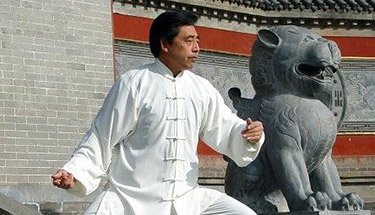Grinding out the skill
Chen Xiaoxing has said repeatedly in his seminars that one should simply ‘grind out the skill’ to get better at taijiquan. As with any other skill (gongfu), learning taijiquan takes practice. Lots of practice. All the health and martial benefits flow from this. But what kind of practice is this?

K. Anders Ericsson published a landmark paper on what he calls ‘deliberate practice’ in 1993. I think grinding out the skill and deliberate practice amount to the same thing. One case Ericsson examined involved high level violin players in a music academy. The average hours practised by the high level players, in their early 20s, came to 10,000 hours across their lifetime so far (with quite a large variance, from 3000 hours to 20,000 hours). Malcolm Gladwell and Daniel Goleman have both written popular accounts of deliberate practice based on Ericsson’s work.
In the original paper Ericsson writes that deliberate practice occurs under these conditions:
The most cited condition concerns the subjects’ motivation to attend to the task and exert effort to improve their performance. In addition, the design of the task should take into account the preexisting knowledge of the learners so that the task can be correctly understood after a brief period of instruction. The subjects should receive immediate informative feedback and knowledge of results of their performance. The subjects should repeatedly perform the same or similar tasks.
— K. Anders Ericsson, Ralf Th. Krampe, and Clemens Tesch-Romer, ‘The Role of Deliberate Practice in the Acquisition of Expert Performance’, Psychological Review 1993, Vol. 100. No. 3, p. 367.
These four conditions — motivation, instruction, feedback, and repetition — are crucial to improvement in learning new skills. However, some researchers have pushed back on just how important practice is compared to genetics, talent, and other factors. Here is one meta-study and discussion on the importance of deliberate practice compared to other factors. Those other factors tend to be fixed things and beyond our control. What we can do is improve how and how much we practice.
In the world of traditional instruction in Chen taijiquan, there can be no doubt that grinding out the skill is immensely important. All the recent taijiquan masters talk about hours and hours of practice every day for years on end. This is probably beyond most people. Nick Gudge, a student of Wang Haijun in Manchester, has an account of the taijiquan practice it might take to become really good. But the health benefits can be felt immediately. The key, I think, is working on motivation, instruction, feedback and repetition everyday.